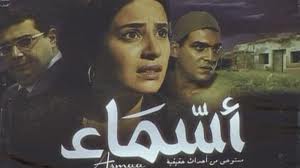Tripoli, 8 June 2013:
The Arete Cinema Club, which regularly . . .[restrict]shows films in Tripoli, is expanding to Benghazi and Zawia, where it will hold weekly film screenings.
The arts were neglected under the old regime, and Cinemas and theatres in Libya were closed for decades. The Arete Cinema Club, which started in October last year, aims to reintroduce films to the community. Arete shows critically-acclaimed Arab cinema as well as award-winning and classic films from around the world.
Film showing times and venues for today, Saturday 8 June are as follows:
In Tripoli, Arete will be showing A New Day in Old Sana’a, the first feature film to come out of the Yemen, which is shot entirely on location in the ancient city of Sana’a.
Directed by Bader Bin Hires, this romantic film explores tensions between arranged marriage, entwined with family honour, and love at first sight.
Handsome young Tariq is about to marry Bilquis, the eldest daughter of a prominent and powerful judge. As he wanders through Sana’a late one night, he finds a new love and a new meaning to life. Before long, the young groom must choose between following his heart and protecting his family’s honour.
A New Day in Old Sana’a is in Arabic with English subtitles. The film is being shown at Tripoli’s Art House, on El Sekka Road, and the screening starts at 6 pm.
The film-showing in Zawia is the award-winning 2011 Egyptian film Asmaa.
Starring Hend Sabry, Asmaa details the plight of a young woman who left her rural home for the city. Now living in Cairo and working in a menial job at the airport, she struggles to support her teenage daughter and unemployed, ageing father.
The devout young widow suffers from a gallbladder problem which requires an operation but no doctor will treat her because she is HIV positive. Social prejudice forces her to keep her illness secret, but then she faces a dilemma when the opportunity arises to appear on a television talk show.
Based on the true story of a woman who died from a burst gallbladder after doctors refused to operate on her because she had AIDS, Asmaa was one of the first Arab films to present HIV and AIDS patients in a sympathetic light.
Director Amr Salama said that, through this film, he wanted to correct the “misconceptions and lies” about the disease. He said the film was not about HIV/AIDS but was rather about the battle against social prejudice towards it in Egypt. Salama said that more people are dying because of such misconceptions than actually from the disease.
Asamaa will be shown at 6 pm at the Culture House in Zawia.
In Benghazi, Arete will be showing the Algerian film Rachida.
Rachida evokes some of the worst terrorism atrocities in Algeria, showing the far-reaching effect these had across society.
Directed by Yamina Bachir-Chouikh, the film stars Ibtisam Jouadi as Rachida, a young teacher. She is stopped in the street one day by terrorists who try and force her to place a bomb in her school. Rachida refuses and is shot and left for dead. She miraculously survives, and seeks refuge in a nearby village.
Rachida is a moving story about a community and, above all, about its women, who heroically struggle to restore the dignity of the people around them.
Rachida is in Arabic with English subtitles. The film will be shown at 7 pm at the Feel Cinema (Qarya Siyahiya). [/restrict]










